 |
Why Is Estimating Software Testing Time So Difficult? Management loves to ask testers to estimate how long their efforts will take. But so many important aspects elude measurement that testing time is difficult to predict. Here are some of the major factors that significantly influence our ability to estimate testing time well, along with some advice on how you can tighten up your efforts.
|
|
 |
Building Software Development Dashboards with Key Performance Indicators Key performance indicators help managers gauge the team’s progress, understand what phase the project is in, and figure out where costs, goals, or processes need to be adjusted. This article details some typical KPIs to be used in dashboards to provide business analytics and communicate information in the most useful way.
|
|
 |
Setting Up Your Team for Success in the Estimation Process If you want to be successful at managing projects, you need a good estimation process. Having a smooth, repeatable process helps deliver more accurate estimation, even when you’re dealing with strict deadlines and deviation risks. This article details some practices your team should perform for less-stress estimation.
|
|
 |
Writing and Presenting Successful Business Proposals Making proposals can be a discouraging task if there’s no clear presales process in mind. When we talk about IT business proposals in terms of selling solutions, a technical approach is often viewed as the best solution, but you need more than a simple idea to produce results.
|
|
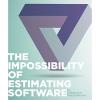 |
The Impossibility of Estimating Software Estimating software schedules must be an art, not a science. With so many techniques published on the subject, why is it so difficult? It has to do with the human element and past project knowledge.
|
|
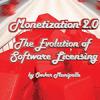 |
Monetization 2.0: The Evolution of Software Licensing The cloud and the rapid migration to mobile devices and the Internet of Things have made traditional software licensing schemes obsolete. Omkar describes new software monetization based on business, pricing models, and usage.
|
|
 |
Can Test Estimation Be à la Carte? In this installment of FAQ, Rob Sabourin discusses the benefits of providing stakeholders a "menu" of past projects to help better estimate their current project's testing needs.
|
|
 |
Piece By Piece: Test Estimation and Planning in Agile Teams The iterative agile methodology provides a clearer vision, smaller time scale, and closer planning horizon. The authors look at approaches to estimation and planning, from product backlog grooming to task-estimating tables and more.
|
|
 |
From Proposal to Project: An Interview with Larry Putnam Jr.
Video
Larry Putnam Jr., co-chief executive officer at QSM, sits down to talk about the importance of the proposal when executing a successful project, five key questions that should be answered before any project starts, and how software estimation ties into the proposal process.
|
|
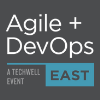 |
Deception and Estimation: How We Fool Ourselves
Slideshow
Cognitive scientists tell us that we are hardwired for deception, which makes accurate estimation almost impossible. We must simply accept that our estimates are best guesses and continually re-evaluate as we go, which is the agile approach to managing change.
|
Linda Rising
|
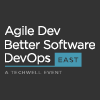 |
To Estimate or Not to Estimate: A Panel Discussion
Slideshow
When will you deliver that feature? How much will this project cost? Which features can I have in four weeks? These are all reasonable questions that both management and customers need answered, and traditionally, we’ve used estimates to provide such answers. But estimates can turn into commitments, dollars get spent based on misinformation, features end up misaligned with business needs, and all parties involved end up feeling misled and frustrated. The key question is, can we still make decisions without traditional estimates? Join us as our panel of experts discuss this question and many more. The panel will explore how teams can use #NoEstimates thinking to meet the needs of their stakeholders, how to maintain alignment without estimates, and pragmatic ways to move the focus from estimates to metrics and measures that enable teams to deliver high-quality products that will delight their customers.
|
Ryan Ripley
|
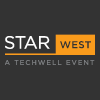 |
Improve Planning Estimates by Reducing Your Human Biases
Slideshow
Are you puzzled about why your estimate turned out wrong, or stressed from working to meet an impossible deadline? Some teams on inaccurately estimated projects suffer stress, burnout, and poor quality as pressure is applied to stick to an unrealistic schedule. Such project teams also descend into irrational decision-making—with potentially catastrophic consequences. Frustratingly, even when teams perform well, they are often judged by their failure to meet impossible deadlines. Andrew Brown will show how estimation errors are caused not just by new technology or intentionally manipulated estimations, but also from limitations in the way we think. Andrew will explain how cognitive biases contribute to estimation errors and show how to mitigate these biases. Learn how the planning fallacy, anchoring effect, and optimistic bias contribute to estimation errors and lead to irrational decision-making.
|
Andrew Brown
|
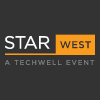 |
Testing In The Dark
Slideshow
Isn’t it amazing? Stakeholders drop software on our desks and expect us to test it—without any requirements, design, or product knowledge whatsoever. About the only clear thing is the absurd and unrealistic deadline. We are expected to bend over backward, spread magic pixie dust, and heroically test quality into a product we have never heard of before. But testing in the dark is not impossible, and as Rob Sabourin shows, it can even be a very valuable and fun experience. Learn strategies to emerge from a murky fog into clear, meaningful quality insights and leverage unlikely sources about what stakeholders care about and what users really need the software to do. Rob introduces you to methods of reconnaissance-style, charter-driven, and session-based exploratory testing and help you provide meaningful estimates to stakeholders with minimal hard information about the software under test.
|
Rob Sabourin
|
Visit Our Other Communities
StickyMinds is a TechWell community.
Through conferences, training, consulting, and online resources, TechWell helps you develop and deliver great software every day.

